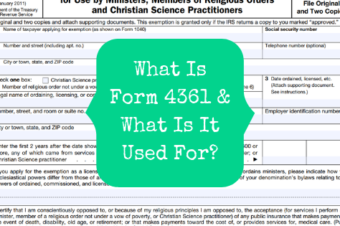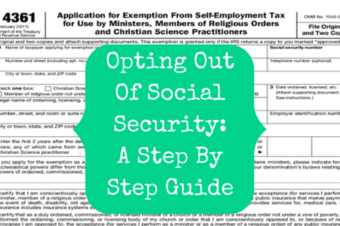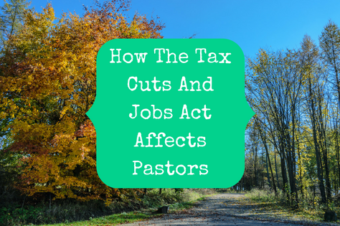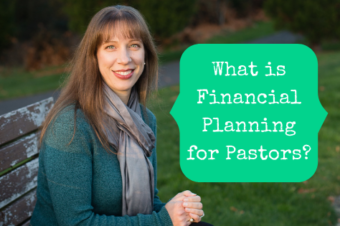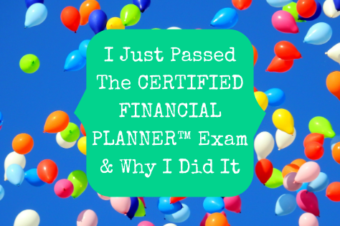We recently went over Form 4361, the IRS document used by pastors to receive an exemption from self-employment taxes. If you’re not familiar with it, you should go back and read about it here.
One thing we didn’t discuss in that article, though, was the timing. That’s because I didn’t want to overwhelm you with too much information. So, today we are discussing the timing involved and I will give you multiple examples to make things as clear as possible. It is important that you understand when Form 4361 can be filed because once your window of opportunity is gone, it is gone forever.
Is There A Time Limit For Pastors To File Form 4361 To Opt Out Of Social Security?
Specific dates are requested on the form because you only have a small window of time in which you are allowed to opt out of Social Security. Form 4361 must be filed by the due date, including extensions, of the second tax year in which you have $400 or more of net earnings from self-employment, any of which came from ministerial services.
That’s kind of long, so let’s break it down in reverse:
Earnings From Ministerial Services
The clock starts ticking when you have earnings from ministerial services. The IRS defines ministerial services as the services you perform in the exercise of your ministry. Usually, that would be wages earned or offerings received as a pastor. However, if you perform a wedding and the father of the bride gives you a $50 bill, that also counts as earnings from ministerial services. Basically, any money given to you because of some pastoral thing you did counts.
$400 Of Net Earnings From Self-Employment
You need to have at least $400 of net earnings from self-employment for the tax year in question to count towards the time limit. It is important to note that you don’t have to have $400 of ministerial income. Other non-ministerial self-employment income counts towards the $400. Even if you only earn the $50 for performing the wedding, if you earned at least $350 in your secular side gig, it counts towards your two years.
Second Tax Year
The deadline to file Form 4361 is based on two tax years. Tax years are calendar years and for this situation, they do not have to be consecutive. So, if you earn at least $400 of pastoral income one year and none the next, the deadline to request an exemption will not be triggered until the next year that you have sufficient ministerial income.
Due Date, Including Extensions
Finally, the due date for your Form 4361 is the due date for your tax return, including extensions. Tax returns are usually due on April 15 of the following year. Sometimes the date gets pushed back a day or two if the 15th falls on a weekend or holiday. In addition, everyone is eligible to file for a 6-month extension to file their return, which pushes the date to October 15.
Let’s take a look at how this might look in real life.
Examples Of How It Applies In Different Situations
Let’s look at an example. You get licensed and start a regular pastoral job in 2021 which pays you $50,000 a year. That means that your first tax year is 2021 and your second tax year is 2022, so you have to file Form 4361 by the due date for your 2022 tax return. That was April 18, 2023, but you could file an extension until October 16, 2023. So, you need to submit your Form 4361 by October 16, 2023.
Here’s another example: You get ordained in 2020 and work part-time, earning $10,000. Then, you take two years off and earn no ministerial income. In 2023 you do a few weddings and earn $500. Your deadline for filing Form 4361 will be the due date for your 2023 return. Even though you were ordained in 2020, the following two years, 2021 and 2022, don’t count towards the time limit because you had no pastoral income during those two years.
One final example for the entrepreneurs out there: You have a small side business that generates $5,000 a year. You are ordained in December 2022 and earn $80 as a pastor that year. The next year, 2023, you work full-time as a pastor and earn $60,000. Your Form 4361 is due by the due date for your 2023 tax return. Even though your ministerial income was below $400 in 2022, your other self-employment exceeded the limit so that year counts.
It is vital that you understand the timing required for filing Form 4361. If you don’t file by the deadline, you forever lose the opportunity to opt out. There are no second chances here.


